Inside the Genesis of Virtue's Last Reward and the Challenges of Visual Novels
Things aren't looking so rosy for a continuation of Spike Chunsoft's Zero Escape series. We talk to director Kotaro Uchikoshi about the inspiration behind his games, and the challenges of keeping a niche genre alive.
This article first appeared on USgamer, a partner publication of VG247. Some content, such as this article, has been migrated to VG247 for posterity after USgamer's closure - but it has not been edited or further vetted by the VG247 team.
This morning, Kotaro Uchikoshi, the director of the Aksys-published visual novels 9-9-9 and Zero Escape: Virtue Last Reward, opened an English-language Twitter account to speak directly to his fans in the West. Unfortunately, the stream of tweets that issued forth were the about last thing his fans wanted to hear: Namely, an admission there's little hope for a third entry in the series.
"A lot of budget is needed to make ZE series," Uchikoshi posted (amidst apologies for his imperfect English). "We have to persuade the managers in order to obtain it. The managers know that ZE series is especially valued by many users outside Japan. Some of them think that they want to make a sequel just as we wish. But, 'in Japan', 999 and VLR are in the red. They are not selling more than people think. I'm so sad, but all the companies exist for profit-making purposes. If the profits can't be expected, naturally, the project isn't approved. We were not able to present a convincing reasonable basis to the managers."
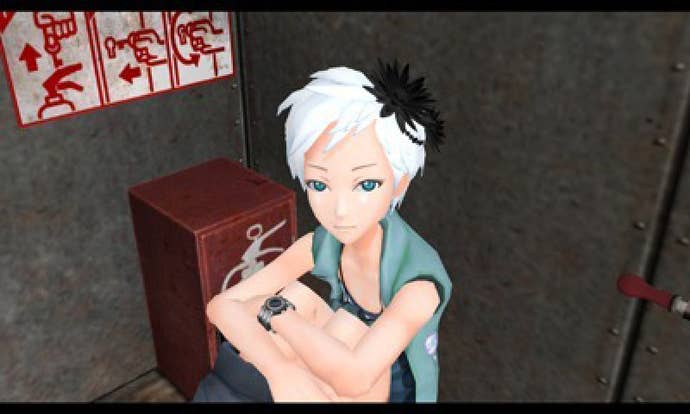
Despite the unhappy news, Uchikoshi still holds out hope for better tidings in the future.
"BUT! please remember," he noted. "I wrote 'at this stage'. If the situation changes, ZE3 might be capable of being realized! I still haven't given up. For example, if the title which I make next bring about a good result, the wind might shift to another direction. Or, if someone with executive ability (financer, producer, publisher or millionaire!) propose the investment, everything could go well.
"I believe there is still hope. ZE3 will definitely be released somehow, someday! I will continue to seek a way out in cooperation with Allies. So, I would appreciate it if you could wait until then. Thank you!"
As it turns out, this is something that's been on Uchikoshi's mind for a while now. He alluded to the niche nature of visual novels even in Japan at his Game Developers Conference 2013 presentation. More recently, I spoke to him at length about his work, and he expressed many of the same concerns. While 9-9-9 and VLR clearly stand as works of love for Uchikoshi, his enthusiasm can't overcome the realities of business.
For more on Uchikoshi's thoughts from our conversation a few months ago, read on....
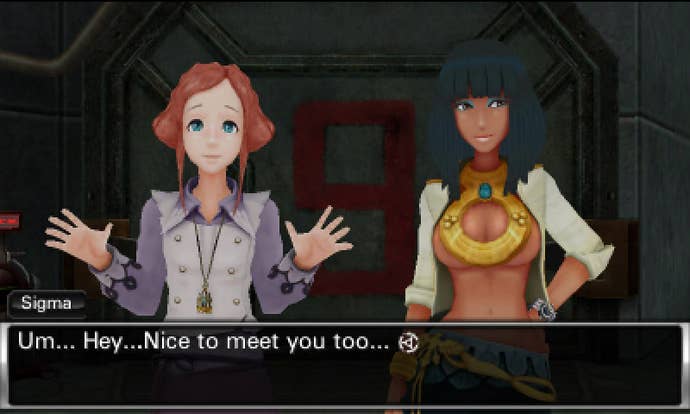
USgamer: You're well known now for visual novels you've worked on, something America doesn't have a lot of history with. That genre is pretty new here -- your games are high-profile first steps into the market there. It seems like the genre is pretty popular in Japan, though. How did you get involved in them?
Kotaro Uchikoshi: Visual novels actually aren't that big a genre over here in Japan, either. It's not that popular among the general audience. However, there is a core fanbase. There are a lot of people, like in Akihabara, who really like visual novels.
As for how I got started working in visual novels, that was pretty simple. I used to be at a different company when I was in my 20s. This company created bishoujo games, those games with anime-like pretty girls in them. The producer there came to me and said, "You seem like you'd be able to write a scenario for us. Why don't you try it?" And that's how I got started in scenario writing.
US: Before you got into scenario writing, what was your original aspiration as a game creator?
KU: The company I worked with was called KID. I was there as a planner. They did bishoujo games, but they also made ports of board games to the PlayStation, like The Game of Life. I wanted to work on that, and that's why I worked on the company. However, that producer from the bishoujo game side came to me, and I'd already been interested in writing scenarios. I'd written some things on my own like that. I was more interested in the board-game side of the company at the time, but it was a good opportunity, so I took it.
US: Do you know what inspired that producer to look at you and say, "I think you'd be good at writing a scenario"?
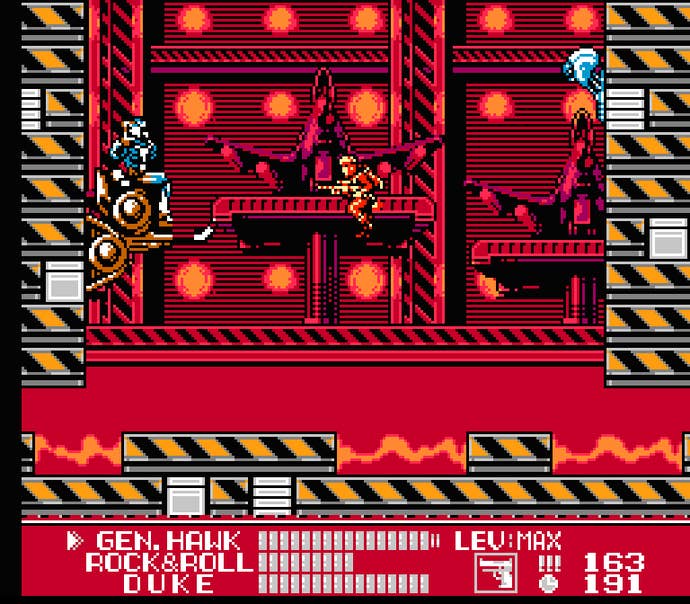
KU: He'd probably seen me write and put together design docs and things like that. So it's not like he'd never seen me write anything. But probably the biggest factor was that I'm just not too serious. As a matter of fact, I'm the total opposite of a serious person. So he probably thought, "Oh, he'd probably be able to do this." Because I have that kind of personality, I think.
US: You mentioned The Game of Life. Are you a big board game fan?
KU: The Game of Life is a board game, but it's a very simple kind of board game. There were a lot of light-user fans. Back in the day I was interested in the idea of games that a light user could enjoy. That was right around the time that Parappa the Rapper was out, which was another kind of game like that – pretty simple and easy for a lot of people to get into. I was interested in making those kinds of games.
US: You mentioned earlier that visual novels aren't really that popular in Japan, but they have a core user base. It seems like I see a lot of visual novels published over here – import release lists always have a lot of them. Can you talk more about their place in the industry here and what kind of role they have in Japanese gaming?
KU: That's a tough question. If you look at the subculture scene, it does seem like the weight of visual novels is pretty heavy. Some visual novels get turned into anime as well. And if you search on the Internet, you see a lot of coverage of visual novels. So they do have a heavy weight in that subculture scene. A lot of core gamers are really into them. But people who buy Animal Crossing or get into Tomodachi Collection… among those kinds of people, the mainstream, it's not a popular genre.
US: Why do you think that kind of subculture has managed to thrive in Japan, whereas it sort of vanished in the '80s in America? Once text adventures became graphical adventures, Western developers stopped making games built around text.
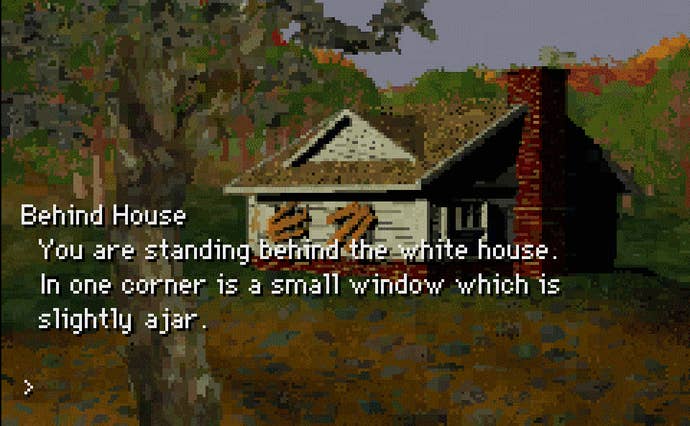
KU: One thing that might be a big factor is just that the Japanese like to read. We don't feel like reading is a pain. Maybe that's one factor.
US: Well, I'm pretty sure Americans like to read too. [laughter] I don't know. Is there something else to it, or do you think that's really what it boils down to?
KU: For KID, bishoujo games were something that you couldn't really take away from them. It was something that was a really important part of them. And then there was Comic Market. People would go to Comic Market and dress up as those characters. There was the doujin [fan works] market there as well. So there were a lot of factors that came together to pump up this culture.
In the end it probably comes down to the difference in our…tribes? It's just the difference between us and other countries. Let's say America has its Star Wars fans, and people get together before a premiere wearing Star Wars costumes. For us it's people dressing up as cute little girls. It's just a difference between cultures.
US: Is the doujin scene where a lot of visual novels come from – that kind of independent, amateur development?
KU: Yeah, probably. Nowadays it's more like that.
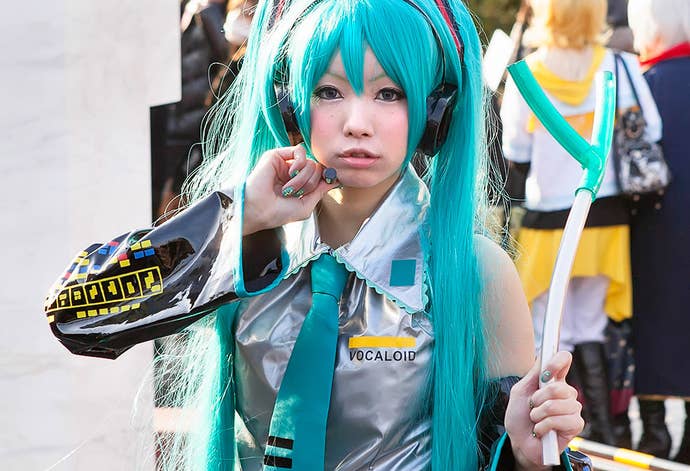
US: There's been a lot of talk lately about how there seems to be a rising number of independent game developers in Japan making a lot of interesting games, something that's been happening in the West for a while now. I get the sense that there's a division between indie game developers and doujin game developers in Japan, even though they're kind of the same thing. What's your take on the cultural differences there?
KU: I think the biggest difference is that… The important thing is, are you making something original? The independent people are making original creations. Doujin people are using the characters that come out of other original productions, other people's characters. That seems like the big difference to me.
US: Are there any original ideas to come out of the doujin scene? I'm not clear on the history there, but it does seem like there have been a few cases where people have created original works out of that scene that became very popular.
KU: There was a game called Higurashi no Naku Koro Ni, which was also a visual novel. It came out of the doujin scene – it was an original project – and became popular among both the doujin people and outside that scene. And there's also the Touhou franchise, which also originally came out of the doujin scene.
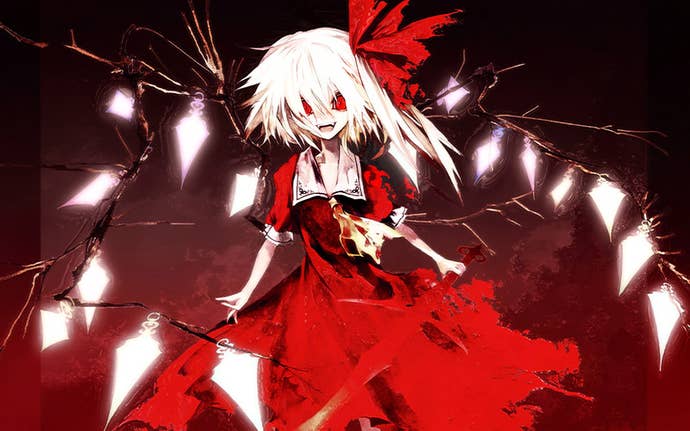
US: The doujin scene mostly works with bishoujo games, like the ones KID made. The games you've directed at Chunsoft aren't really in that style. Can you talk about the direction you've taken with games like 9-9-9 and Virtue's Last Reward?
KU: It's Spike Chunsoft – the two companies merged, so now it's Spike Chunsoft – but originally I joined Chunsoft, which was a company that was known for visual novels like Kamaitachi no Yoru. They put out several big titles in that genre. They were more concentrating on mystery stories or adventure stories. They weren't doing the bishoujo type of game that KID concentrated on.
Basically, Chunsoft came to me and asked them to join the team to create visual novels for them. That's how I started working there. At Chunsoft, they were saying that they'd had success in the visual novel genre, but they wanted to create a new category, something that could be more broadly received. I came up with the idea of mixing puzzles together with the scenario in these games – I thought it might help bring them to a broader audience.
US: What challenges did you encounter in combining those different styles of game?
KU: Games like the Professor Layton series are also games that mix puzzle and story together this way. But what I wanted to do is to have the puzzles involved in the story. With other games like this, you could try playing a puzzle, and if it was too difficult, you could just put it aside and keep progressing through the story and come back to it later. I wanted to create a game where you couldn't do that, because the puzzle is part of the story – there's a hidden clue within the puzzle, and if you don't clear the puzzle you can't move forward in the story. Balancing out the relationship between puzzles and story in that situation was a big challenge for me.
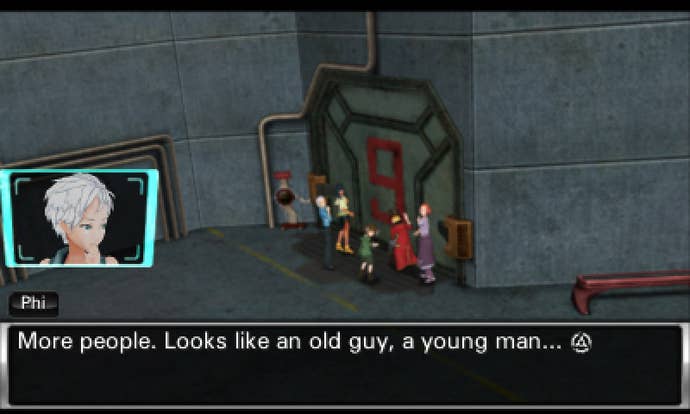
US: I see what you're saying. The puzzles and the scenario in the Layton games… They're good games, but the puzzles just feel like they were thrown in there. At the same time, though, there's always the danger that if you can't skip a puzzle, someone will get to a point where they can't solve a puzzle and then they'll be stuck. How do you make allowances for that?
KU: You're right, yeah. That does happen. We paid really close attention to that. With 9-9-9, what we did is that we'll give you hints. If you keep clicking on things, we'll give you more and more hints to the point where we're almost telling you the answer. So you won't get stuck. You could choose to get a hint, and if you do that, you'll be able to solve it yourself. With VLR, we put difficulty levels in the game. If you play on the easy mode, the puzzles are really easy there.
US: It seems like there's a slightly harsh tone to your games. They're very…high-stress, I guess, with difficult scenarios. It's very different compared to bishoujo games, where it's often about finding the right person to romance. The stakes aren't quite so high.
KU: It's not really that I shifted to this genre and I'm staying in this genre. It's more like a movie director. Sometimes a movie director will make love stories and sometimes he'll make a suspense movie. In the future, I'd like to write love stories or more human drama and things like that.
US: What, in your opinion, is the basis for a good story in a visual novel?
KU: There are a lot of important things, but what I think is the most important is to be able to put yourself in the player's shoes. I imagine what the player is thinking through every scene that I write. Let's say there's going to be an emotional scene, where the player is going to feel depressed or sad or angry. In those kinds of scenes, I try to see things from the player's perspective and decide what to write. That's the most important thing, I feel like.
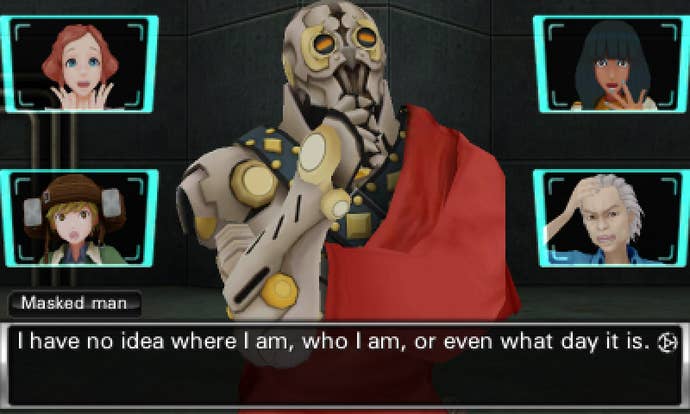
US: I know you've mostly worked as a scenario writer for visual novels, but of course that's not the only kind of game that Spike Chunsoft creates. Have you ever thought about branching into other roles or other genres, or trying other things with games?
KU: Like I said earlier, visual novels have a lot of hardcore fans. There's definitely a fanbase. But it's not a genre that sells a lot of copies. So the company wants me to create something that sells better. Because of that, even if I want to make visual novels, they won't be letting me make them. I've been doing a lot of work in different genres. Of course, when I'm working on titles in different genres, I'm usually still in charge of narrative. That's where I put my original work into the game. However, there are some titles where I'm just working as a director.
US: Can you talk about any of those?
KU: Actually, no, I can't really reveal anything about those right now.
US: Speaking in more theoretical, general terms, I know Chunsoft has a strong background in things like role-playing games – the Mystery Dungeon games – and action games. How would you take the discipline that you've developed with games like 9-9-9 and VLR and apply that to other genres? In the sense that, with these games you tried to combine the visual novel with other concepts and ideas. Do you see yourself taking that same approach with other game genres?
KU: Yes, I am thinking about that, although I can't go into details right now. However, it's pretty common lately to put something and something together. That's a common move to take.
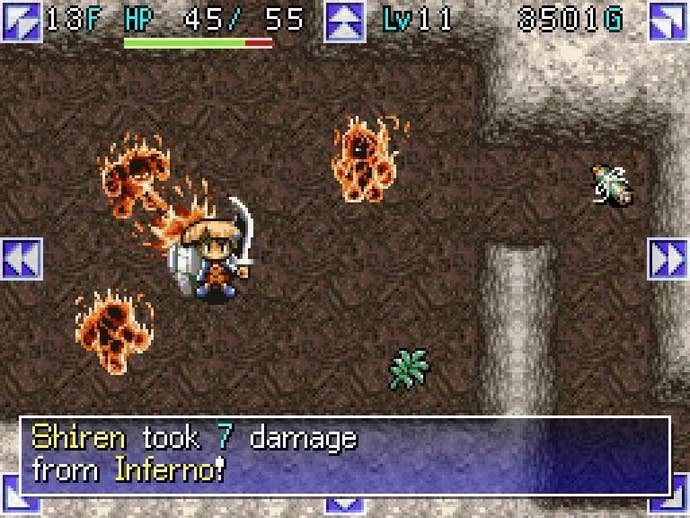
US: As a creator I'm sure you're influenced by other works. Can you talk about the kind of stories you enjoy – books, movies, television?
KU: I like a lot of things, so it's hard for me to pick a favorite, but there was an anime called Code Geass from around 2007 and 2008. I really liked it. I thought it was the best anime I'd ever seen. I'm not related to the writer or anything, but it was something that I really wanted to recommend to people. It's a "picaresque roman" – basically, the main character is a bad guy. It's that kind of a story. But it was something I really enjoyed.
US: What was it about that story that appealed to you so much?
KU: The main character is a really, really, really bad guy. But he has his beliefs. To get that belief through, he uses his brain a lot. In this story, justice isn't usually expressed as justice. That's something that was interesting to me. Also, in other anime, the main character is usually strong or bright or has something special about him. This main character doesn't actually have great physical skills. He can't get in a robot and fight with people. He's not really that strong. The only strength that he has is that he's really smart, so he'll think of strategies to win over everyone else. That's also very interesting to me. It's kind of describing the beauty of evil, in a way. It's very different.
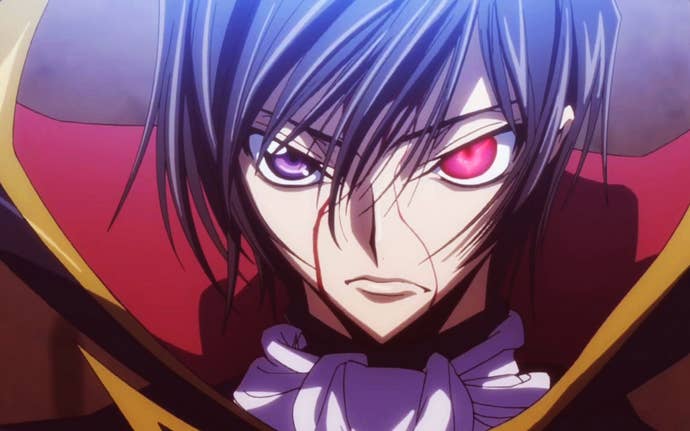
US: The way you described Code Geass also sounds like it might have had some influence on games like 9-9-9 and VLR. Would you say that's the case?
KU: Actually, 9-9-9 and VLR are very different in that way. I don't feel like there was an influence there. But I wrote a visual novel called Steins;Gate. In that game, Code Geass shows up a lot. The main character isn't actually a bad guy, but he's a kind of wannabe bad guy. I could see that Geass had an influence in some capacity there.
US: What do you think about the reception your games have received overseas?
KU: I feel very honored. I'm thankful that people overseas have played my games and know about my games. I appreciate Aksys, the people who localized the game. The folks there really looked into the game and understood the game while they were working on the localization. I'm really thankful for that. From here on out, I feel like the overseas market, the fans outside of Japan, are really important. I want to take them into consideration when I create my next games that I'm working on.
